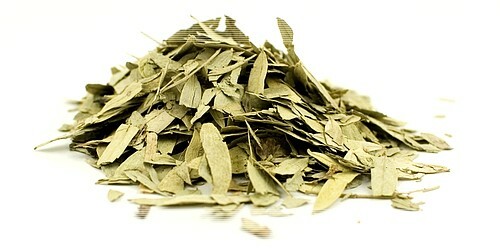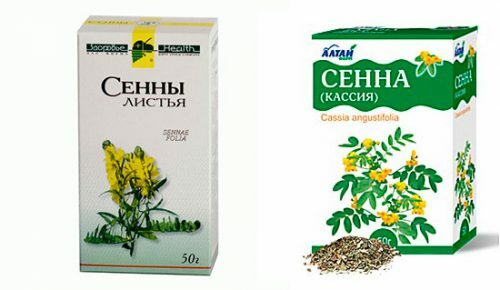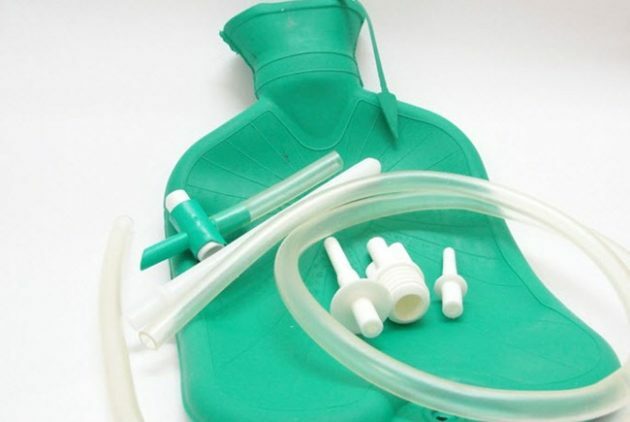Applying Senna herb from constipation
Senna herb from constipation in the people is considered one of the most effective and safe laxatives.
But before using the herb, you should familiarize yourself with its properties and the principle of action, so as not to harm your body.
Useful properties of Senna
Contents:
- Useful senna properties
- Indications and contraindications for use
- Preparations of senna for children
- How to take Senna preparations?
Senna( another name is the Alexandria leaf, Cassia) is a plant of legumes that grows in the tropical regions of India and Asia.
Externally, the plant is a low shrub with yellow flowers. Useful properties of Senna have long been known both in folk and in traditional medicine, and these days this healing herb is specially grown for the production of medicines.
Senna includes special substances - anthraglycosides. It is to them that the grass is responsible for its laxative effect.
The fact is that these active substances, getting into the digestive tract, affect the receptors of the stomach mucosa, which contributes to the improvement of the intestine peristalsis.

Intestinal motility is adjusted, its walls contract, as a result, stool is removed and defecation occurs.
Thanks to this gentle action on the body, senna leaves( which are most often used as medicines) are recommended to anyone who has encountered such a delicate problem as constipation.
Indications and contraindications for use
Senna is one of the recognized natural laxatives for intestinal atony and chronic constipation.
Taking medicines based on this plant can gently and quickly remove stool, adjust peristalsis without causing pain in the abdomen.
In addition to the mild laxative effect, the herb has a cholagogue effect. This property explains the use of infusions and decoctions of Senna in diseases of the gastrointestinal tract.
Since the plant is a mild laxative, it is recommended for hemorrhoids and anal fissures.
However, like any herbal remedy, senna has a number of contraindications.

So, to take medicine based on this herb is not worth it with spastic constipation and colitis, with inflammatory processes and bleeding in the abdominal cavity( for example, an inflammation of the appendix), with cystitis, intestinal obstruction and undiagnosed pain in the abdomen.
Do not prescribe senna preparations during pregnancy and lactation. With an individual intolerance of the drug, allergic reactions are possible, so the use of senna-based drugs is recommended under the supervision of a doctor.
Senna preparations for children
Young children often have malfunctioning of the gastrointestinal tract. Sometimes such malfunctions lead to atony of the intestine and constipation.
Since the use of strong medications to relieve stale stagnation in children is not recommended by pediatricians, parents under the guidance of a doctor can refer to natural laxatives.
Senna leaves are one of the first effective drugs to relieve a child's condition during constipation.
Although the drug is usually well tolerated and does not cause side effects, its use is not recommended for children under 2 years of age.
Of all types of medicinal products, children are prescribed water infusion of Senna leaves at the rate of 5-10 g per 100 ml of water. From 2 to 4 years, the dosage is 1 tsp, from 5 to 7 years - 1 dessert spoon, from 8 to 14 years - 1 tbsp. L.
The drug is used 2 - 3 times a day. When the dose is raised, the child may complain of the appearance of abdominal pain and flatulence. In this case, you need to reduce the dose of the drug.
How to take Senna drugs?
Senna is an herb that has been well established as a mild and effective laxative. Doctors prescribe medicines based on this herb for improving intestinal motility, purifying the body and removing toxins.
Numerous reviews confirm that the use of tablets, decoctions and infusions from this herb promotes the rapid removal of stagnation and normalization of the intestine.
As for any drug, for senna, there are recommendations on the dosage and pattern of drug use on its basis.
Video:
The choice of medication and dosage should be discussed with the attending physician. The course of taking medicines based on senna leaves should not exceed a week, because long-term use of such medicines due to irritating effects on the intestinal mucosa can lead to a decrease in the sensitivity of its walls and disruption of peristalsis.
An increase in the intake of senna-based medication should be strictly under the supervision of the physician if there are direct indications.
Senna can be taken in the following ways:
- infusion;
- decoction;
- tablets and teas.
For atonic constipation and for bowel cleansing, it is recommended to prepare an infusion of Senna herb. The leaves of Senna are previously dried and ground.
The resulting raw material is poured in cold water at a rate of 1 tsp. Herbs on a glass of water. The infusion is left for a day, then filtered and drunk only once before bedtime.
The effect of the drug comes in about 6 to 8 hours. The mixture can be stored in the refrigerator for no more than 3 days.
To cleanse the body and normalize the peristalsis of the gastrointestinal tract, a decoction of senna helps.
Instructions for preparing this decoction is simple: a tablespoon of dried and finely chopped leaves of the plant should be poured into 200 ml of boiling water and simmer on a steam bath for about half an hour.
Blend the mixture and drink 2 hours after eating. It is advisable not to eat after decoction. Perhaps not only a one-time cleansing, but also a whole course of cleaning the intestines.
To do this, gradually increase the dose of broth to 200 ml and take the drug for 10 days.
In the pharmacy you can find tablets and senna teas prepared in an industrial way. Tea of Senna for convenience of use is sold in special filter packages with a ready-made dosage.
This tea should be brewed and taken according to the instructions given on the package. Tablets are a compressed raw material from the leaves of Senna. Adults appoint 2 - 4 tablets, children from 6 years - 1-2 tablets a day.
Senna herb is prescribed for constipation if its cause is atony of the intestine, a decrease in its motility and the formation of stagnation.
In order to establish an accurate diagnosis and to select the right treatment regimen for senna-based drugs, you should consult a therapist and a gastroenterologist.
Taking medicinal herbs, although it is safe enough, but has contraindications and with an incorrect dosage can worsen a patient's condition.



